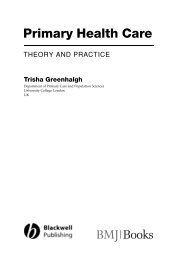DOING BUSINESS 2009 - JOHN J. HADDAD, Ph.D.
DOING BUSINESS 2009 - JOHN J. HADDAD, Ph.D.
DOING BUSINESS 2009 - JOHN J. HADDAD, Ph.D.
You also want an ePaper? Increase the reach of your titles
YUMPU automatically turns print PDFs into web optimized ePapers that Google loves.
Steps for encumbrance checking, deed and title transferuntil property can be sold again or used as collateralNote: See Data notes for details.REGISTERING PROPERTY 27FIGURE 5.4Africa has reformed the mostNumber of reforms easing property registrationby Doing Business report yearDB2006 DB2007 DB2008 DB<strong>2009</strong>Sub-SaharanAfrica(46 economies)Eastern Europe& Central Asia(28 economies)Latin America& Caribbean(32 economies)Middle East &North Africa(19 economies)OECDhigh income(24 economies)South Asia(8 economies)East Asia& Pacific(24 economies)2Note: A reform is counted as 1 reform per reforming economy per year.Source: Doing Business database.589132331FIGURE 5.5Top 5 reform featuresin registering propertyReforms including feature since DB2006 (%)Reduced taxes or fees19%Computerized procedures19%Increased administrative efficiency16%Combined and reduced procedures12%Introduced fast-track procedures or time limitsNote: A reform may include several reform features.Source: Doing Business database.47%lishing a low fixed registration fee ratherthan charging entrepreneurs a percentageof their property value. In 2005Slovakia abolished its 3% real estatetransfer tax and set a low fixed fee forexpedited registration at 8,000 koruny($286). In 2007 Egypt and Poland adoptedsimilar reforms. And in 2007/08Rwanda followed suit. This reform tendsto reduce fraud in reporting the marketvalue of property and increase tax revenue.Six months after Egypt replacedits 3% registration fee with a fixed fee of2,000 Egyptian pounds ($323), revenuesrose by 39%. 3Computerizing the registryOne of the most popular reform featureshas been computerizing the registry andintroducing online procedures that aidinteraction between the notary and theregistry. Computerization can be costly,so it is not surprising that more thanhalf of such reforms have been in EasternEurope and Central Asia and OECDhigh-income economies.Computerizing registries has provedto be highly effective. The economies thathave done so since 2005 have seen thetime to register property drop by 45%on average. In El Salvador, which computerizedits registry in 2006, the time toregister property fell from 52 days to 33.Portugal computerized the Lisbon realestate registries in 2007, reducing thetime from 81 days to 42. Computerizingrecords not only facilitates registrationbut also improves the preservation ofthe records and, as a result, the securityof titles.Digitizing the property registry’s recordsand facilitating electronic accesscan improve things, but this alone is oftennot enough. In 2005 Honduras launcheda reform aimed at allowing every entrepreneuronline access to the registry’sinformation. But online access did notresolve the many inconsistencies in informationbetween the registry and thecadastre. To do this, the 2 agencies mustbe coordinated, and the cadastre updatedregularly. 4 Comayagua, 80 kilometersnorthwest of Tegucigalpa, is the only cityin Honduras that has completely digitizedits property registry’s records, thanks toan updated digital cadastre.HOW TO REFORMSome reforms to ease property registration,such as eliminating unnecessaryprocedures or reducing the numberof approvals required, can be donequickly—once everyone is convincedof the benefits. Such reforms usuallyrequire no drastic changes in the legislationand can be executed administratively.In previous years such economiesas Côte d’Ivoire, Georgia and Ghana havereduced the time required to registerproperty by eliminating long and unnecessaryprocedures.Inspiration can sometimes be foundat home. Doing Business subnationalstudies have shown that local authorities,federal and municipal, learn fromone another to improve registration processes,even if they share the same legaland regulatory framework. This processwas at work in Mexico, where Aguascalientesfollowed Yucatán’s experiencein simplifying the registration processand reducing fees at the land registry. In2007/08 San Luis Potosí and Chiapas followedAguascalientes’s example of introducinga bar code to allow computerizedtracking of property records. 5(c) The International Bank for Reconstruction and Development / The World Bank
















